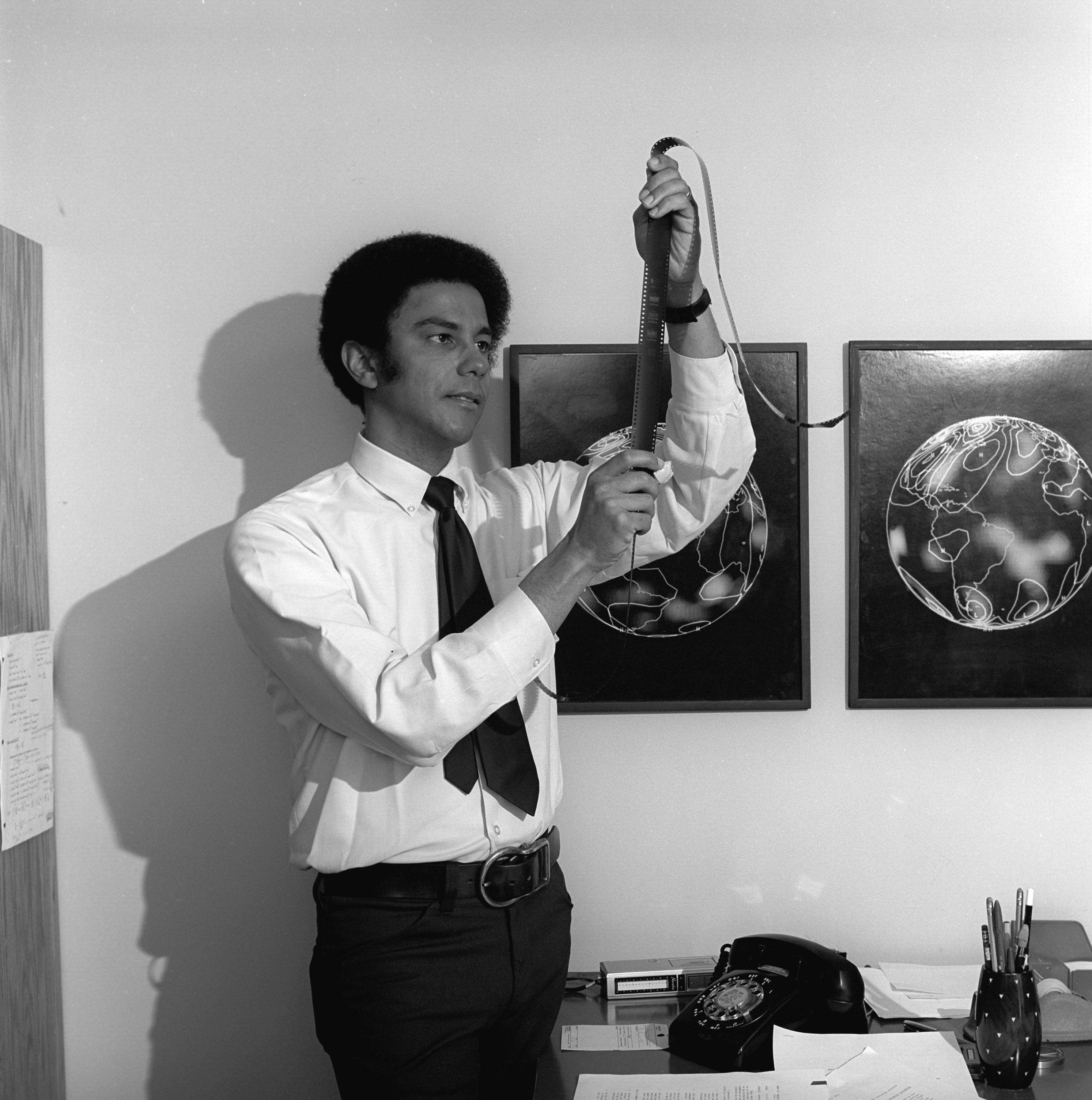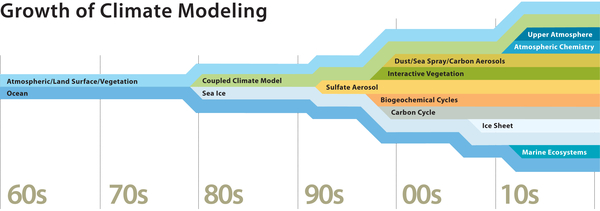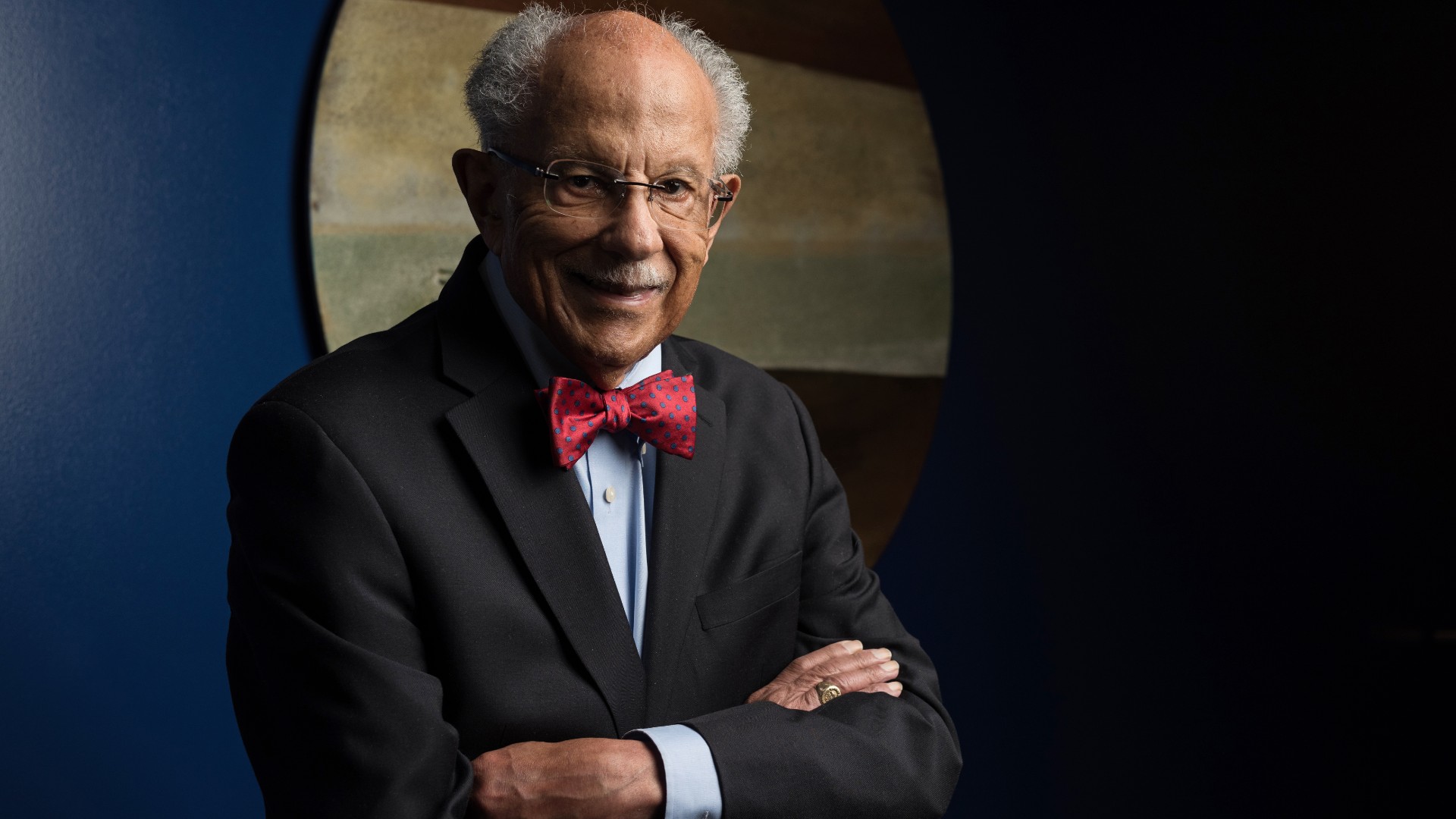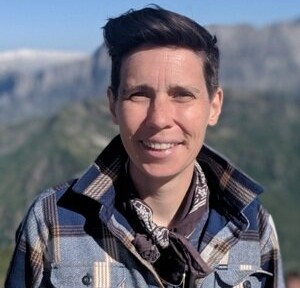When Warren Washington completed his doctorate in meteorology from Pennsylvania State University in 1964 he was just the second African American ever to earn a PhD in the atmospheric sciences. In May, Washington, now 82, will return to the school for a ceremony as a building is named in his honor.
It’s just one more thing that Washington, a pioneer in the study of climate change, can add to a long list of accolades. In 2010 President Obama honored him with the National Medal of Science. And this month Washington was named winner of the Tyler Prize, the prestigious award recognizing environmental achievement. He shares this year’s prize with fellow climate scientist Michael Mann.
Washington helped pioneer the field of atmospheric computer modeling, a tool that’s widely used today to help better understand climate change. At the National Center for Atmospheric Research, where he began working in 1963, he helped build one of the first computer models to understand the Earth’s climate. He worked there until retiring last year.
With more than 50 years of research aimed at understanding the Earth’s climate, Washington has had a front-row seat to both scientific discovery and political inaction.

“We proved that we could make a model of the atmosphere showing the basic change of seasons, the change of day/night, temperature and winds,” he says, remembering back to his work in the 1960s. “Our first objective was to build a model and get reasonable results, and the second was to use the model to understand future and past climates.”
That groundbreaking work was also incredibly tedious. “Computers at the time were very slow, so it took us one day of computing time to do one day of simulation,” he says.
They continued to refine their models and, in the late 1970s, Washington and his colleagues were enlisted by the Department of Energy to test how increasing carbon dioxide affects the climate system.
“We were one of the first modeler groups to actually carry out an atmospheric model coupled with ocean models and sea ice models — we brought in other aspects of the climate system,” he says. And they confirmed what other scientists were also finding out — that climate change was caused by increasing greenhouse gases, particularly carbon dioxide.
As skeptics posited other theories, like increased solar radiation, Washington and his colleagues used their models to debunk the claims. “Climate models are a tool that allow you to separate one effect versus another and as we did that we got a better understanding of what was happening and became more confident in giving our opinions to the policymakers,” says Washington.
The more advanced modeling today has helped show that hurricanes are getting stronger, and droughts and heat waves more intense. And it’s not just apparent in the models. “We’re the first generation that can actually see the climate changing — in the past you could live a lifetime and never see hardly any climate change,” he says.

Washington admits that the current situation affects him in a deeply personal way. “I have 16 grandchildren and they’re going to see significant climate change in their lifetimes.”
And that, he says, concerns him. As a scientist it also makes him feel a certain sense of responsibility. “We feel an obligation to speak out about what we know, and if we’re honest about it, what we don’t know,” he says. “But the overwhelming consensus from scientists who study climate change is that the culprit is increasing greenhouse gas emissions — so the question is, how do we deal with it?”
The answer, he says, is that we’ll need to invest in technologies like wind and solar, as well as cut back on fossil fuel production, but new technologies to help mitigate climate change will also be important.
“I think the science, engineering and technology fields are coming up with some good ideas that need to be explored,” he says. But that will take more research and pilot studies, which require resources. And that’s one of the reasons he has been unhappy with the Trump administration abandoning the Paris Accord, which he says, may not be enough but is at least moving countries in the right direction. “President Trump has ignored the agreement and he hasn’t given any reason why other than that he doesn’t believe in climate change,” says Washington. “Well, he doesn’t believe in facts in general.”
Fighting the climate crisis is time sensitive and needs to be done as quickly as possible. But Washington says that will take a lot of courage from politicians, something made tougher by the influence of the fossil fuel industry in campaign finance. He is heartened, though, to see that public opinion has shifted considerably and nearly 70 percent of Americans think climate change is now a major environmental issue, according to research from Yale University.
Scientists are also getting better at communicating about their findings, too, says Washington. He thinks that the awarding of this year’s Tyler Prize to himself and Mann, who’s known for his work in science communication, speaks to the efforts of the broader scientific community. “I interpret it as that the whole community has worked hard to do the research and to communicate to the public and policymakers,” he says.
Over the course of his career he has advised six presidential administrations. The current one is not among them, but Washington says if he could, he’d tell the Trump administration to reverse its opinion on climate change and rejoin the Paris Accord.
“We need to get on the right side of starting to do more — we see it happening at the state level and in some cities that are taking take steps to deal with climate change,” he says. “I think there would be a lot of public support for it.”
![]()


